By Adem Kılıç *
The Cyprus problem is one of the oldest negotiated problems in the world in the field of international relations. It is one of the issues that enter the international literature as ‘frozen conflict’, in this sense, it resembles the Lebanon, Israel-Palestinian, Taiwan, Kashmir, Abkhazia-South Ossetia and Karabağ issues.The biggest problem on the island derives from Britain’s strategy of creating ‘influence areas’, implemented for centuries. We can see that Britain implemented this strategy in Cyprus in many areas that have gained independence from the UK.
One of the many examples in the world for that is the Kashmir issue. Britain departed the region consisting of India and Pakistan after the Second World War, and left the Kashmir region, where Muslims were majority, to India. And therefore the region is still the scene of conflicts even today.
In 1960, the island of Cyprus has gained its independence with the signing of three agreements called “Establishment, Alliance and Guarantee”. However, even after these agreements, the relevant policy of the UK began to show itself in Cyprus, as in other points.
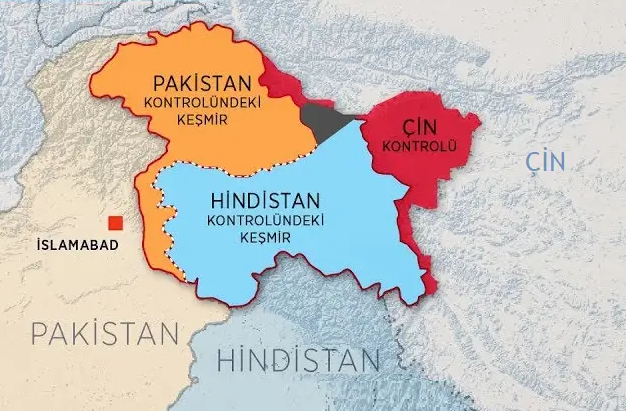
The Greeks on the island of Cyprus followed provocations from Greece and the dream of Enosis and tried to change the Cyprus Constitution unilaterally in 1963. Their objective was to purify the island of Cyprus from the Turkish society by forcing the Turkish people to emigrate.
Upon these steps, clashes began between the parties on the island. The process, which was initiated by the Greek Cypriots with the constitutional amendment, aimed to limit the Turks on only to 3 % of the island and thus to “Hellenize” the island. This fired the wick of the conflict.

It was desired to deprive the Turkish Cypriot community from their lands, historical and political rights of existence. The pressures mounted up to massacres, which were ignored by the UN and the UK.
In 1963, the crisis was frozen with UN intervention and the guarantor states’ mediation until 1967, and a peace force was formed consisting of Türkiye, Greece and Britain as UN-led guarantor countries.
However, as in the case of Kashmir, at that point the strategy of England came into play and British General assigned to command the troops divided on the map of Nicosia was with a green pen. The concept called ‘Green Line’ was formed in this way.
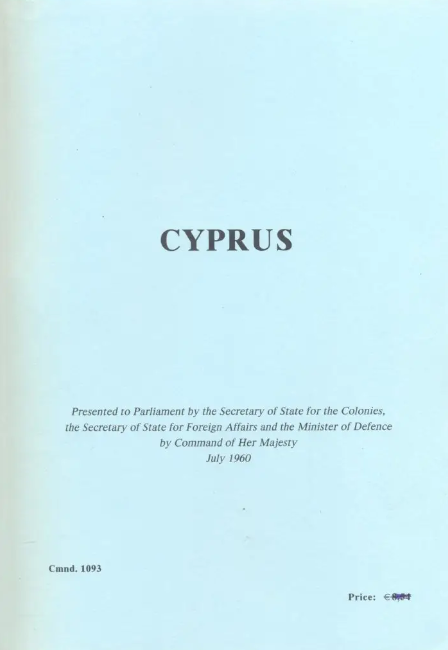
Meanwhile, Athens secretly deployed a Greek military force of 20,000 men to the island. After these developments, until 1974, these military units formed by the Greek Cypriots and Greece carried out many acts of oppression, persecution and even massacres. More than a thousand Turkish Cypriots lost their lives in the events such as Ayvasıl massacre, the beach massacre, the Agios Vasileios massacre, the Limassol massacre, the Famagusta massacre, August-Tikeya Massacre and the Geçitkale massacre.
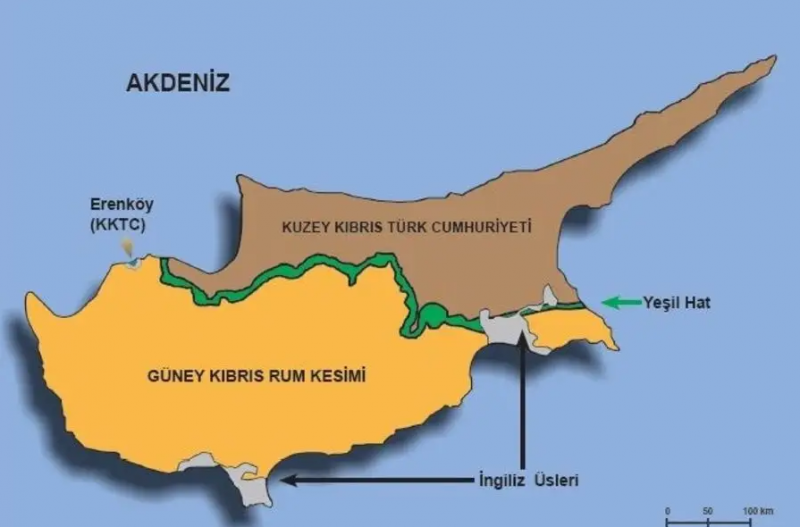
Following all these massacres, in 1974, differences of opinion have emerged among Greek rulers in Cyprus. Makarios, the leader of the Greek Cypriots, feared Turkish intervention and therefore tried to disconnect the Turkish Cypriot population from Türkiye by using socio-economic measures. The leader of the armed group EOKA, Nikos Sampson on the other side defended a position of hurry in implementing Enosis. And on July 15, 1974, Sampson gained the support of the junta government in Greece and pursued a coup against Makarios, taking over the government.
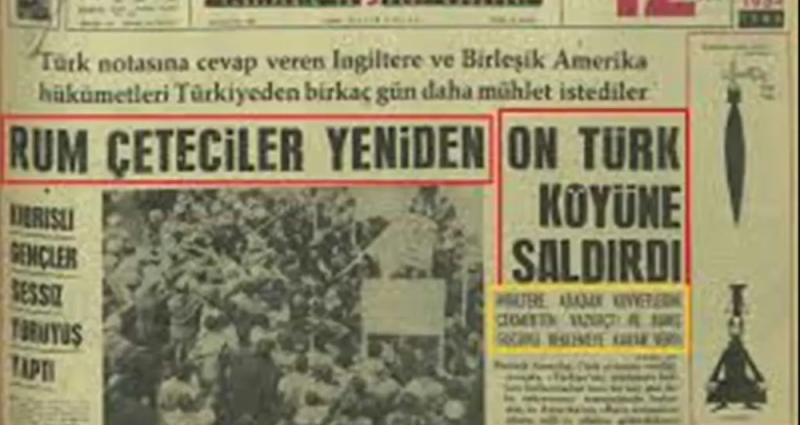
With the coup following all the past massacres, the Turkish Cypriot community was left on the island with almost no guarantee of existence or security.
Immediately after the coup, Türkiye proposed to the UK a joint intervention based on the guarantor agreement, but the British response was negative. Upon this, on July 20, 1974, Türkiye carried out the Cyprus Peace Operation by using the rights emanating from its status as guarantor power according to international law.
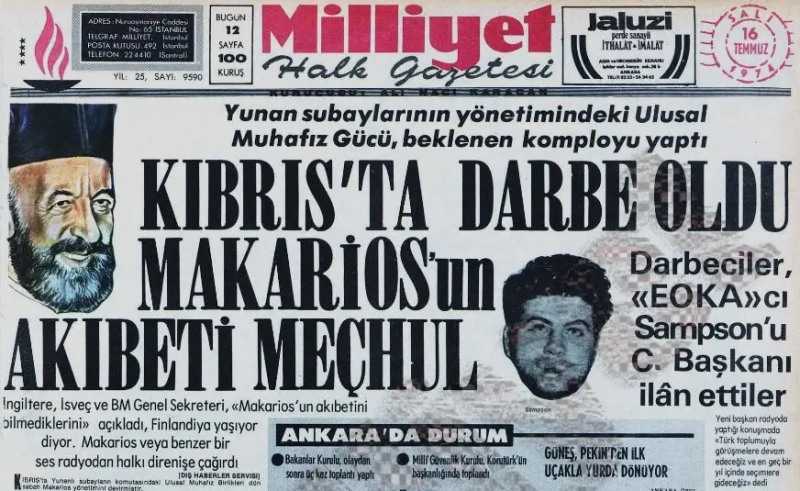
With this operation, the annexation of Cyprus to Greece was prevented. Following meetings between Rauf Denktaş and Glafkos Klerides in Vienna in 1975 under UN auspices, a population exchange was agreed and the island officially divided into two parts. According to the agreement, the two parts were separated with a buffer zone of 180 kilometers length and 7 kilometers width. Immediately after the agreement, Türkiye deployed a corps to Cyprus and guaranteed the security of the Turkish Cypriot people.
After the operation, first the the Turkish Cypriot Federated State was declared in 1975, and later, on November 15, 1983, the Turkish Republic of Northern Cyprus.
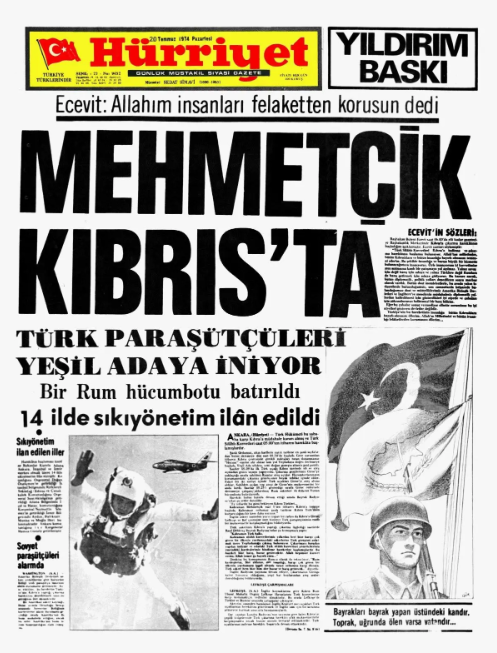
The entirety of this historical process and the related international conventions upheld by the UN demonstrate officially the legitimate position of the Turkish Cypriots and the presence of Türkiye on the island as a guarantor country.
Türkiye’s justified thesis according to international law
The Treaty of Zurih and the Treaty of London, signed in 1959, form the basis of the “Republic of Cyprus”. The principles reached in these treaties have been the basis for the Constitution of the Republic of Cyprus.
The Zurich Agreement states: “The State of Cyprus will be a republic based on the presidential regime. The president will be Greek Cypriot and the Vice-President a Turkish Cypriot. The Greek and Turkish communities on the island will elect both separately in general elections.
The Turks will not take part in government as a minority, but a founding partner, and the Turkish Vice President will have veto right.
Again according to the agreement, there will be 7 Greeks and 3 Turkish ministers in the government. 70 %of the members of the National Assembly will be elected from the Turkish community to 30 %of the Greek community.”
However, in spite of these agreements approved by the guarantor countries and the UN, all these conditions were first disrupted by the Greek Cypriots in 1963, especially in attempting a unilateral constitutional amendment and then later with the coup in 1974.
After the clashes in Cyprus in 1963, the United States and the UK presented a new draft proposal to the UN Security Council. This resolution again confirmed the continuing validity of the Zurich and London Treaties as basic documents that provide the independence of Cyprus. The resolution also confirmed that each of the guarantor states has the right to intervene separately.
This resolution was adopted on March 4, 1964 and has remained in force until 1974. In other words, Türkiye’s landing operation in Cyprus was legitimate on the grounds of both the Zurich and London Treaties as well as on the basis of the UN resolution.
The UN Security Council has made more than 100 decisions in the Cyprus issue since 1960. The majority of these consist of routine decisions that extend the term of the Peace Force on the island every year.
After 1974, Türkiye was defined as an ‘occupier’ on the island despite the fact the its operation occurred based on these treaties and legitimate theses. However, since that date, almost no negative or condemning decisions were taken in response to the unilateral actions of Greece and the Greeks.
Türkiye’s conciliatory attitude, as in the Annan Plan, was constantly rejected by the Greek and Greek administrations, which accelerated a process of dead-end in negotiations.
On the other hand, international agreements signed by the Greek Cypriot Administration of South Cyprus (GCAS), in the context of EU membership and being the sole representative of the island are entirely against these agreements and international law.
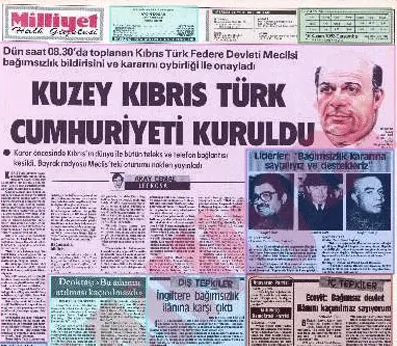
The fact that the Greek Cypriots signed agreements concerning EU membership and other international matters shows they ignore the “Veto Right of the Turkish Community” as enshrined in the 1960 “Foundation, Alliance and Guarantee” Agreement. With these decisions, the Greek Cypriots violated the Article 8 of the Zurich and London Agreements on the Basic Structure of the Republic of Cyprus and the 1st paragraph of Article 50 of the Constitution of the 1960 Republic of Cyprus.
By joining the European Union and therefore 27 EU countries, including Greece, the Greek Cypriots of the island have violated Article 1 and 2 of the 1960 Guarantorship Agreement, which states that “parties on the island cannot unite with other countries and unilaterally cannot be a party to international conventions”. The EU membership of the Greek Cypriots was also contrary to the UN Security Council’s decision 649 (1990). The decision in question calls both sides to avoid steps that worse the current situation.
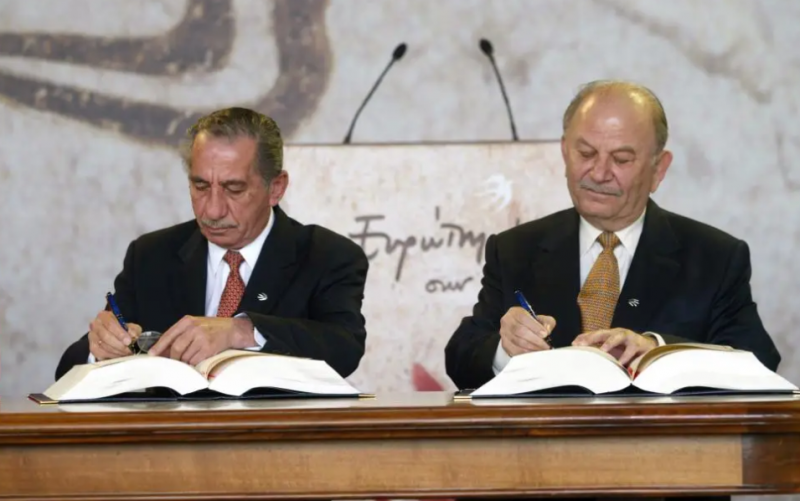
Conclusion
In the Cyprus issue, it is very obvious that Türkiye’s arguments are very clear and legitimate in terms of international law.
The Cyprus problem is no longer a problem that can be solved as a result of the parties living on the island to meet in a common denominator.
The Greek Cypriot Administration of South Cyprus, which continues its unilateral actions and ignores international law and treaties, is now clearly protected by the parties it is siding with. For example: Although they were a guarantor and knew the treaties, Britain and Greece did not veto the unlawful membership of Cyprus to the EU.
The US’ moves to establish bases on the islands and finally their move to train South Cyprus’ troops now clearly show the master behind the puppets. This requires a serious action plan to move forward, especially in the same diplomatic mobilization, on the other hand to the region, especially the TRNC military retaliation on a large scale is inevitable.
Considering the currently rising tension in the Eastern Mediterranean, Türkiye needs to take steps for the purpose of achieving international recognition of the TRNC. This is of course a subject that neither needs hasty steps, while it will have broad international repercussions.
But today, Türkiye prioritizes its own interests in many areas from Libya to Karabakh, from Eastern Mediterranean to Syria and follows a fully independent policy. And Ankara has the will and strength to solve this issue.
* Political scientist, author







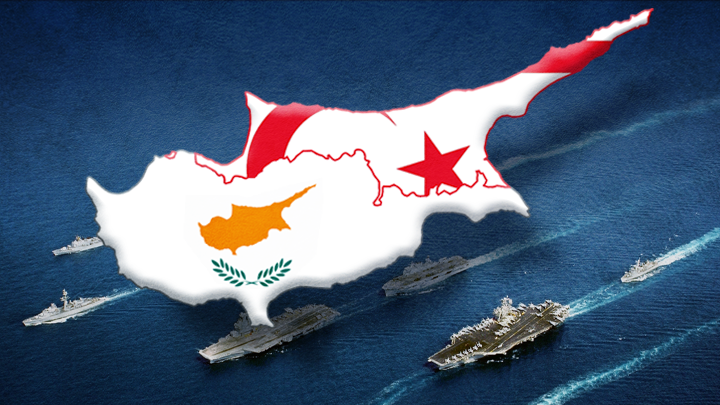









Leave a Reply